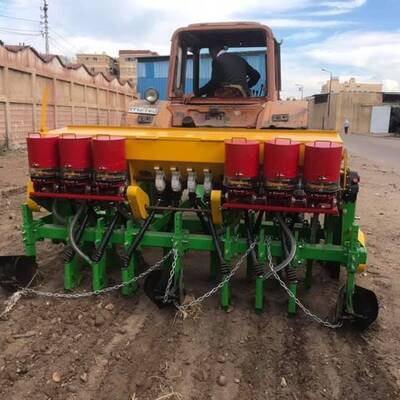Water innovations that work

It is thanks to the support of the Deutsche Gesellschaft für Internationale Zusammenarbeit (GIZ) that this work is made possible.
Throughout dry regions across the Middle East, Africa, and Asia, farmers' battle with water scarcity is intensifying along with climate change. Erratic rain patterns, diminishing freshwater supplies, protracted droughts, high evaporation rates, salinity, and spikes in temperatures all combine to negatively impact agricultural production and income.
In Egypt, the Nile river provides freshwater to irrigate crops along its banks and Delta (a famously rich agricultural region) and water is transported to millions of farmers through a network of conveyance channels and canals. Yet in line with regional trends, Egypt’s annual water supply per person is shrinking, and is likely to breach the UN 500 cubic meter benchmark for ‘absolute scarcity’ as soon as 2030.
ICARDA's innovative ‘Innovative Small-holder Agriculture Resilience’ (iNASHR) project, funded by GIZ and developed alongside Egypt's ARC and Ministry of Agriculture, is helping to address Egypt’s water scarcity and soil quality simultaneously, and through a systemic approach, to improve food security for smallholder family farmers.
iNASHR aims to promote sustainable intensification of wheat-based systems across six Egyptian governorates by facilitating adoption and multiplication of ICARDA-improved seed varieties, modernizing traditional raised-bed farming methods, and reintroducing a cereal/legume crop rotation on-field, through mechanization.
The project is aligned with the Ministry of Agriculture’s top priority to increase the productivity of wheat and reduce Egypt’s cereal production gap. The country currently depends on imported wheat to cover more than half of its population’s needs (bread is the main source of daily calories for most Egyptians).
A raised-bed machine, developed by ICARDA scientists and built by a local manufacturer, can simultaneously dig furrows into the soil to distribute water evenly, and plant wheat or faba bean crops on the beds between the furrows where they receive more sunlight. The system enables farmers to use less water than they would through the traditional flood irrigation technique where pumps are left on until all corners of a field are reached by water, often resulting in waterlogging in some sections of land.

“By using this machine, the crop’s water requirement is quickly met at low water-use, and the field won’t be affected by waterlogging or high salinity levels,” Dessalegn added.
While water for irrigation is available for free to farmers, the majority of them rely on diesel-powered pumps to lift water from the canal onto their field. Since diesel is not always available, and can be expensive, reducing water input through the raised-bed approach eases farmers’ overall cost. It also means that more water will be available for farmers located at the tail-end of canals.
“In Egypt, water quantity and water quality are intertwined challenges,” explained Dr. Mohie el Din Omar, a research associate at ICARDA and a member of iNASHR’s scientific team. Farmers withdraw low-quality drainage water to irrigate their fields when irrigation water from canals dry out. By helping farmers use less water on-field, and reducing their use of chemicals, the iNASHR project contributes to preserving water of better quality for downstream users while reducing Egypt’s water deficit.
Recently, ICARDA scientists tweaked the mechanized raised-bed (MRB) machine to plant faba bean seeds in addition to wheat. Through their root nodules, faba beans capture atmospheric nitrogen and produce protein rich grains without any fertilization. They also improve overall soil quality and break weed, pest and disease cycles, so when rotated into wheat-based systems, faba-beans can significantly improve the productivity of subsequent wheat crops.
Eight wheat and faba MRB machines have been tested on experimental fields and are now ready to be promoted and scaled as part of the integrated package of technologies demonstrated on 420 farmers’ fields for the next planting season. “It was quite an accomplishment to find so many farming families willing to test the newly co-designed production system during COVID-19, and we are really happy to report that the both the wheat and faba bean crops are growing incredibly well,” added Dessalegn.
“For the co-designed production system to lead to the desired outcome, it is important to integrate water, soil, cropping patterns, nutrition, yield, and mechanization; as well as full commitment of all stakeholders and strategies to ensure equitable distribution of benefits,” Dessalegn concluded.

-----

Bezaiet Dessalegn is a social scientist with ICARDA’s Integrated Water and Land Management Research Program

Dr. Mohie Omar is an Associate Professor and water resources scientist at ICARDA



